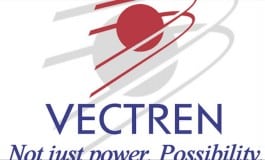COA: Vectren Projects Fail To Meet TDSIC Requirements
The Indiana Court of Appeals has pulled the plug on a power company’s plan to hike rates without allowing the public to view and comment on the proposal.
In October 2015, the Indiana Gas Company Inc. and Southern Indiana Gas & Electric Company, collectively known as Vectren, filed an update petition with the Indiana Utility Regulatory Commission to raise rates to fund several projects.
Two years prior, the utility had gotten approval for its seven-year plan under the Transmission, Distribution, and Storage System Improvement Charges and Deferrals (TDSIC) statute, Indiana Code 8-1-39-1. This law, passed by the Indiana General Assembly in 2013, allows a utility to petition for a “tracker†which is a mechanism that enables a power company to hike rates in order to recover specific costs without having to go through a formal general rate case proceeding.

The IURC approved Vectren’s seven-year plan although the document only included project-by-project details for the first year. For the remaining years, the commission presumed the other projects to be eligible but specifics had to be provided.
When Vectren came forward with its October 2015 petition, it sought to recoup the costs for installing automatic meter reading equipment for its gas-only customers and a new transmission system in the Lafayette area, among other projects.
However, the IURC denied the petition, concluding it did not have the authority to approve projects that were not included in the power company’s original seven-year plan.


Vectren appealed to the Court of Appeals in Indiana Gas Company, Inc. and Southern Indiana Gas & Electric Company v. Indian Utility Regulatory Commission, et al., 93A02-1604-EX-943.
The utility asserted that commission erred by finding the TDSIC statute does not allow a utility to update its seven-year plan with new projects.
The IURC maintained its interpretation was supported by the statute. If a power company were allowed to change or alter its seven-year plan in any manner and without regard to its approved contents, that would defeat the requirement that the commission evaluate the plan in its entirety.


Vectern countered the legislative intent in enacting the TDSIC statute was intending to provide a timelier process for utilities to recover their costs. A broader application of the word “update†would support that intent by qualifying a wider spectrum of projects for timely cost recovery.


A Unanimous Court of Appeals Disagreed.


“Even if we accept Vectren’s argument that the Legislature’s intent in enacting the TDSIC statute was to provide a timely method of cost recovery for utilities, the Legislature clearly did not intend this cost-recovery method to apply to all projects, or even to as many projects as possible, as Vectren seems to suggest,†Judge Rudolph Pyle III wrote for the court. “… Vectren has not alleged that the Legislature repealed the process utilities have for recovering their costs under a general rate case. Accordingly, it is clear that the Legislature intended for utilities to recover some of their costs through general rate cases rather than TDSIC update petitions.â€





